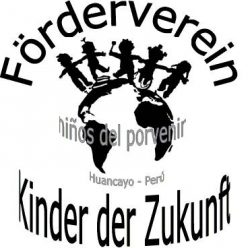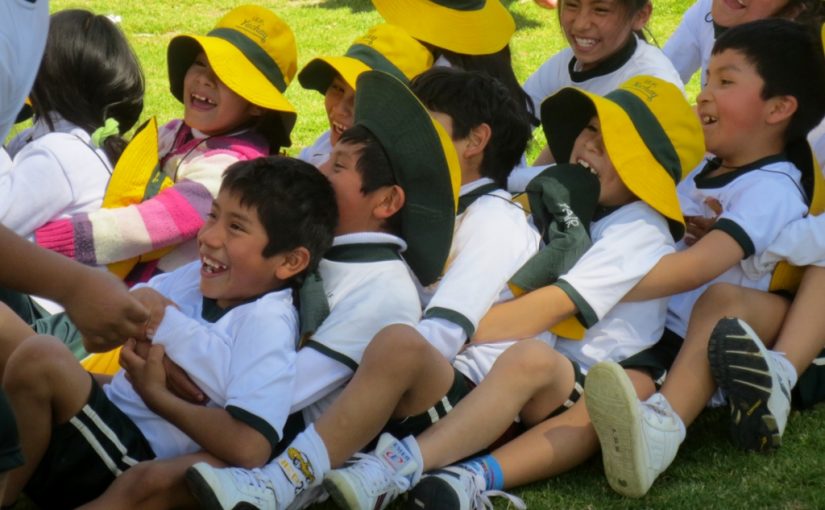Niños del Porvenir is a non-profit association founded on April 25, 2008. It is registered in the Registry Office of Junin (Registry number 11112814 with entry number A0001.)
In 2010, thanks to the support of Kinder der Zukunft, we were able to carry out the initial project of building and opening the elementary school Yachay for poor and socially disadvandagedchildren with difficult access to public education, located in the neighborhood of Ocopilla in Huancayo (Peru).
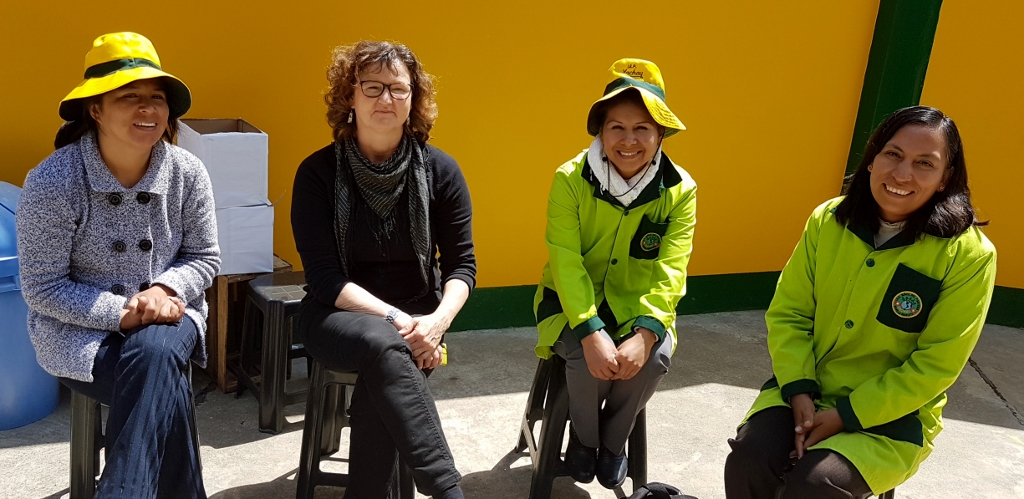
Eva Allpocc Quiroz, Simone Gysi-Theiler, Katia Espinoza Sulca,
Giovanna Cuadros Arauco [from left to right]
Founded thanks to the private initiative of four dedicated teachers
In the year 2005, Simone Gysi, the current president of the Swiss assosiation “Kinder der Zukunft” , met the primary school teacher Giovanna Cuadros Arauco during a volunteer stay at a school for socially disadvantaged children in Huancayo. Over the next three years, Simone visited the project every year and also got to know Katia Espinoza Sulca and Eva Allpocc Quiroz. Unfortunately, certain shortcomings gradually became apparent in the project they were working for.
In April 2008, the four women therefore decided to set up a school for disadvantaged children themselves and founded the non-profit association Niños del Porvenir.
This was a brave decision with an uncertain outcome.
The inauguration of the Yachay school just two years after the association was founded and the success of the project to this day is the well-deserved reward for their courage.
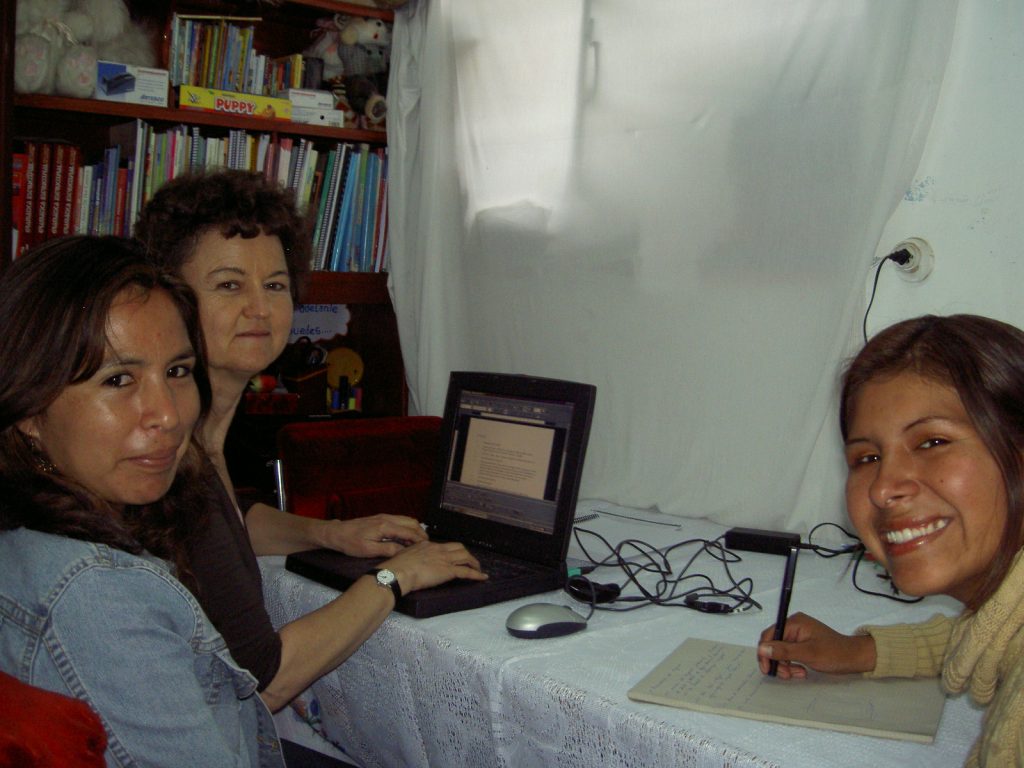
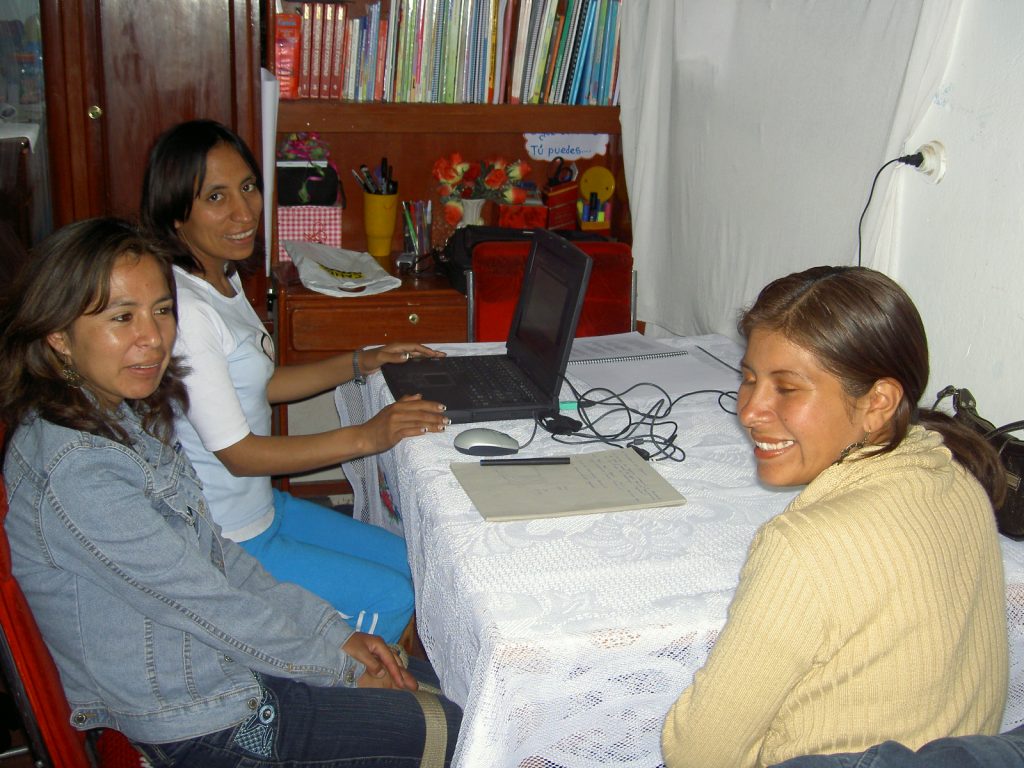
the non-profit association Niños del Porvenir.
Currently, the Yachay elementary school has about 100 students enrolled per year. In addition to teaching traditional subjects, we also offer computer and English classes, and productive workshops focused on manual crafts and cooking.
Niños del Porvenir and Yachay Elementary School Objectives:
- Providing integral education and knowledge to children who have limited access to public education
- Developing their skills and abilities taking into account their situation
- Providing an education based on values by applying pedagogical innovation
- Providing an education based on the identity of the social and cultural context of the children.
- Empowering children and building their resilience
- Educating children about their rights and duties
